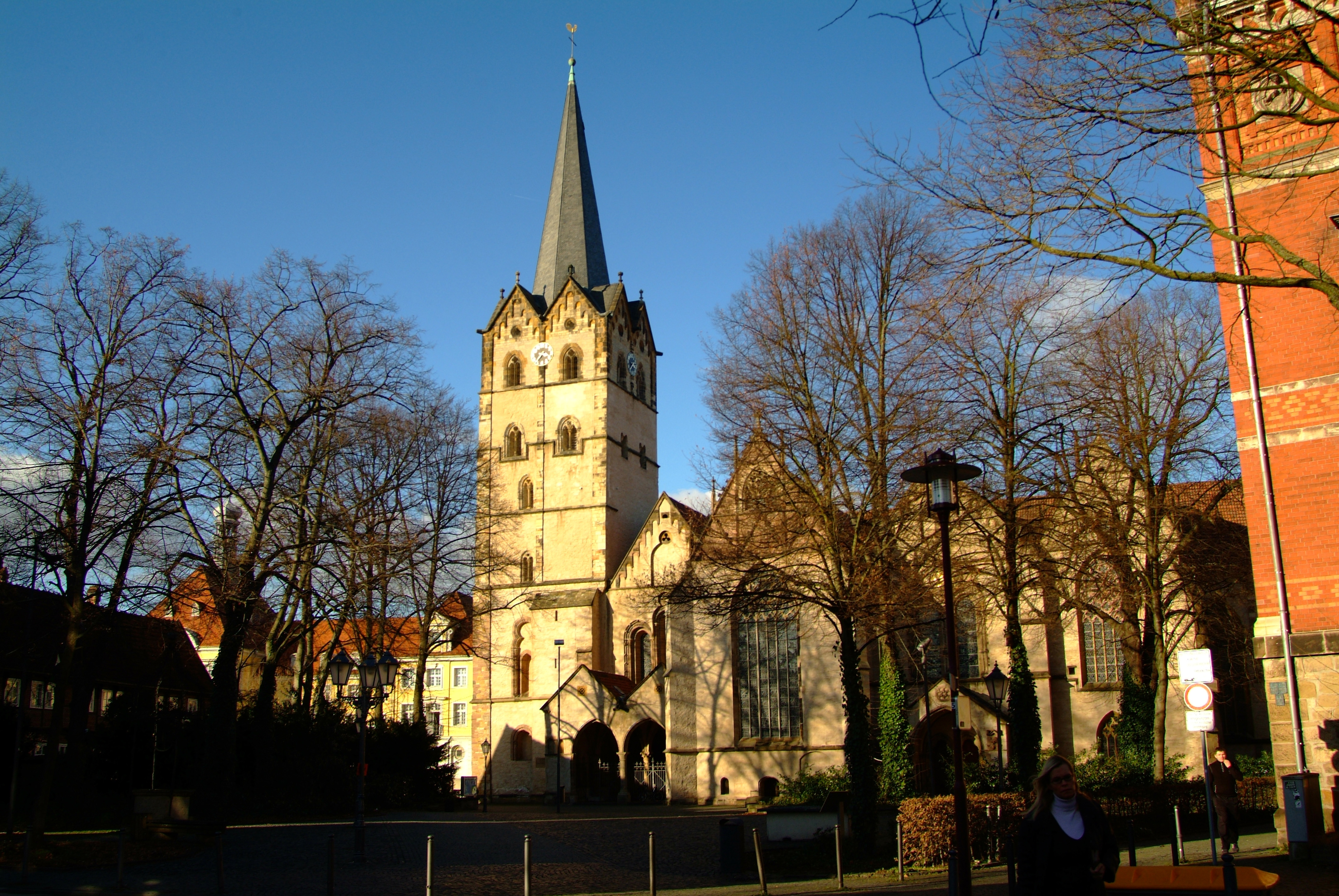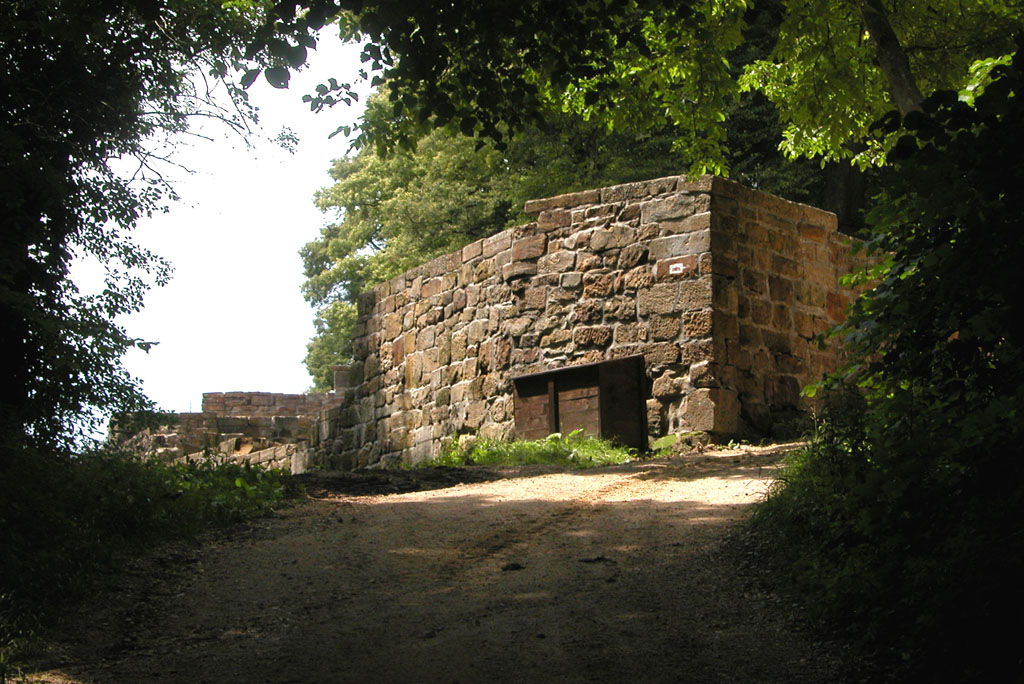|
Mark Mersiowsky
Mark Mersiowsky (28 July 1963 in Herford) is a German historian and diplomatist. He is professor of History of the Middle Ages at the University of Stuttgart. Life Mark Mersiowsky attended primary school in Kabul from 1969 to 1973 and from 1973 to 1982. In 1982 he began his studies of Middle and Modern History, Historical Auxiliary Sciences and Art History at the Westfälische Wilhelms-Universität Münster, the Universität Wien and the Philipps-Universität Marburg, which he completed in 1988 with the Magister Artium at the WWU Münster. From 1988 he worked as a research assistant at the University of Münster. In 1992, he received his doctorate from Peter Johanek in Münster with a thesis on territorial accounting in the German Northwest. From 1998 to 2001 he had a scholarship of the Deutschen Forschungsgemeinschaft. Since 1989 he has held lectureships in Medieval History and Historical Auxiliary Sciences at the Westfälische Wilhelms-Universität Münster, the Universit ... [...More Info...] [...Related Items...] OR: [Wikipedia] [Google] [Baidu] |
Herford
Herford (; nds, Hiarwede) is a town in North Rhine-Westphalia, Germany, located in the lowlands between the hill chains of the Wiehen Hills and the Teutoburg Forest. It is the capital of the district of Herford (district), Herford. Geography Geographic location The former Hanseatic League, Hanseatic town of Herford is situated in the chain of hills south of the Wiehen Hills (Ravensberg Hills). The highest place is the Dornberg (240 m) in the Schwarzenmoor district; the lowest point (56 m) is located in the Werretal in the Falkendiek district. The River Westfälische Aa, Aa joins the river Werre in the centre of the town. The Stuckenberg is located east of the town. Sports The Herforder EV (Ice Dragons) ice hockey club plays in the Regionaliga, and have enjoyed regular success. They draw an average of 800 fans. Neighbouring towns * West: Enger, Hiddenhausen * North: Löhne * North-East: Vlotho * South-East: Bad Salzuflen (Lippe district) * South-West: Bielefeld. Dis ... [...More Info...] [...Related Items...] OR: [Wikipedia] [Google] [Baidu] |
Universität Stuttgart
The University of Stuttgart (german: Universität Stuttgart) is a leading research university located in Stuttgart, Germany. It was founded in 1829 and is organized into 10 faculties. It is one of the oldest technical universities in Germany with highly ranked programs in civil, mechanical, industrial and electrical engineering, among others. It is a member of TU9, an incorporated society of the largest and most notable German institutes of technology. The university is especially known for its reputation in the fields of advanced automotive engineering, efficient industrial and automated manufacturing, process engineering, aerospace engineering and activity-based costing. History From 1770 to 1794, the Karlsschule was the first university in Stuttgart. Located in Stuttgart-Hohenheim, it has since 1818 been the University of Hohenheim and is not related to the University of Stuttgart, except for some joint activities. What is now the University of Stuttgart was founded in 1829, ... [...More Info...] [...Related Items...] OR: [Wikipedia] [Google] [Baidu] |
Living People
Related categories * :Year of birth missing (living people) / :Year of birth unknown * :Date of birth missing (living people) / :Date of birth unknown * :Place of birth missing (living people) / :Place of birth unknown * :Year of death missing / :Year of death unknown * :Date of death missing / :Date of death unknown * :Place of death missing / :Place of death unknown * :Missing middle or first names See also * :Dead people * :Template:L, which generates this category or death years, and birth year and sort keys. : {{DEFAULTSORT:Living people 21st-century people People by status ... [...More Info...] [...Related Items...] OR: [Wikipedia] [Google] [Baidu] |
1963 Births
Events January * January 1 – Bogle–Chandler case: Commonwealth Scientific and Industrial Research Organisation scientist Dr. Gilbert Bogle and Mrs. Margaret Chandler are found dead (presumed poisoned), in bushland near the Lane Cove River, Sydney, Australia. * January 2 – Vietnam War – Battle of Ap Bac: The Viet Cong win their first major victory. * January 9 – A total penumbral lunar eclipse is visible in the Americas, Europe, Africa, and Asia, and is the 56th lunar eclipse of Lunar Saros 114. Gamma has a value of −1.01282. It occurs on the night between Wednesday, January 9 and Thursday, January 10, 1963. * January 13 – 1963 Togolese coup d'état: A military coup in Togo results in the installation of coup leader Emmanuel Bodjollé as president. * January 17 – A last quarter moon occurs between the penumbral lunar eclipse and the annular solar eclipse, only 12 hours, 29 minutes after apogee. * January 19 – Soviet spy Ghe ... [...More Info...] [...Related Items...] OR: [Wikipedia] [Google] [Baidu] |
Regesta Imperii
Papal regesta are the copies, generally entered in special registry volumes, of the papal letters and official documents that are kept in the papal archives. The name is also used to indicate subsequent publications containing such documents, in chronological order, with summaries of their essential contents, for which English diplomatics usually use the term "calendar". Early history The growth of the correspondence of the Holy See is evident even by the end of the 2nd century. Probably from a very early date a copy was made of papal documents before their dispatch, and that the collection of these documents was preserved at the seat of the central administration of the Roman Church. At that time high officials of the Roman State administration, the imperial chancery, the Senate, the consuls, the provincial governments, had all official documents entered in such volumes and preserved in the archives. The books in which these documents were entered were called ''commentarii reges ... [...More Info...] [...Related Items...] OR: [Wikipedia] [Google] [Baidu] |
Academia
An academy (Attic Greek: Ἀκαδήμεια; Koine Greek Ἀκαδημία) is an institution of secondary education, secondary or tertiary education, tertiary higher education, higher learning (and generally also research or honorary membership). The name traces back to Plato's school of philosophy, founded approximately 385 BC at Akademia, a sanctuary of Athena, the goddess of wisdom and Skills, skill, north of Ancient Athens, Athens, Greece. Etymology The word comes from the ''Academy'' in ancient Greece, which derives from the Athenian hero, ''Akademos''. Outside the city walls of Athens, the Gymnasium (ancient Greece), gymnasium was made famous by Plato as a center of learning. The sacred space, dedicated to the goddess of wisdom, Athena, had formerly been an olive Grove (nature), grove, hence the expression "the groves of Academe". In these gardens, the philosopher Plato conversed with followers. Plato developed his sessions into a method of teaching philosophy and in 3 ... [...More Info...] [...Related Items...] OR: [Wikipedia] [Google] [Baidu] |
Ellen Widder
Ellen Widder (born 8 September 1955) is a German historian. Ellen Widder studied history, geography, education and art history at the Universität Münster from 1975 to 1982. There she passed her first state examination in 1982. With Heinz Stoob she received her doctorate at the University of Münster in 1986 with a thesis on the rule of travel Karls IV. south of the Alps.Cf. see the reviews by Andreas Kiesewetter in: '' Sources and research from Italian archives and libraries'' 75 (1995), p. 687-688online; Wilhelm Baum in: ''Der Schlern'' 69 (1995), p. 371-373; Olaf B. Rader in: German Archive for Medieval Research 51 (1995), 293online; Pierre Racine in: ''Francia'' 22 (1995), p. 323-324online; Ingrid Baumgärtner, in: ''Historisches Jahrbuch'' 116 (1996), p. 211-212; Roland Pauler in: ''Zeitschrift für Bayerische Landesgeschichte'' 59 (1996), p. 211-212online; Peter Thorau, in: ''Zeitschrift der Savigny-Stiftung für Rechtsgeschichte, Germanistische Abteilung'' 115 (1998 ... [...More Info...] [...Related Items...] OR: [Wikipedia] [Google] [Baidu] |
Late Middle Ages
The Late Middle Ages or Late Medieval Period was the Periodization, period of European history lasting from AD 1300 to 1500. The Late Middle Ages followed the High Middle Ages and preceded the onset of the early modern period (and in much of Europe, the Renaissance). Around 1300, centuries of prosperity and growth in Europe came to a halt. A series of famines and Plague (disease), plagues, including the Great Famine of 1315–1317 and the Black Death, reduced the population to around half of what it had been before the calamities. Along with depopulation came social unrest and endemic warfare. France and England experienced serious peasant uprisings, such as the Jacquerie and the Peasants' Revolt, as well as over a century of intermittent conflict, the Hundred Years' War. To add to the many problems of the period, the unity of the Catholic Church was temporarily shattered by the Western Schism. Collectively, those events are sometimes called the Crisis of the Late Middle Ages. D ... [...More Info...] [...Related Items...] OR: [Wikipedia] [Google] [Baidu] |
Staufer
The Hohenstaufen dynasty (, , ), also known as the Staufer, was a noble family of unclear origin that rose to rule the Duchy of Swabia from 1079, and to royal rule in the Holy Roman Empire during the Middle Ages from 1138 until 1254. The dynasty's most prominent rulers – Frederick I (1155), Henry VI (1191) and Frederick II (1220) – ascended the imperial throne and also reigned over Italy and Burgundy. The non-contemporary name of 'Hohenstaufen' is derived from the family's Hohenstaufen Castle on the Hohenstaufen mountain at the northern fringes of the Swabian Jura, near the town of Göppingen. Under Hohenstaufen rule, the Holy Roman Empire reached its greatest territorial extent from 1155 to 1268. Name The name Hohenstaufen was first used in the 14th century to distinguish the 'high' (''hohen'') conical hill named Staufen in the Swabian Jura (in the district of Göppingen) from the village of the same name in the valley below. The new name was only applied to the hill ca ... [...More Info...] [...Related Items...] OR: [Wikipedia] [Google] [Baidu] |
Carolingian
The Carolingian dynasty (; known variously as the Carlovingians, Carolingus, Carolings, Karolinger or Karlings) was a Frankish noble family named after Charlemagne, grandson of mayor Charles Martel and a descendant of the Arnulfing and Pippinid clans of the 7th century AD. The dynasty consolidated its power in the 8th century, eventually making the offices of mayor of the palace and '' dux et princeps Francorum'' hereditary, and becoming the ''de facto'' rulers of the Franks as the real powers behind the Merovingian throne. In 751 the Merovingian dynasty which had ruled the Germanic Franks was overthrown with the consent of the Papacy and the aristocracy, and Pepin the Short, son of Martel, was crowned King of the Franks. The Carolingian dynasty reached its peak in 800 with the crowning of Charlemagne as the first Emperor of the Romans in the West in over three centuries. His death in 814 began an extended period of fragmentation of the Carolingian Empire and decline that w ... [...More Info...] [...Related Items...] OR: [Wikipedia] [Google] [Baidu] |
Commission Internationale De Diplomatique
Commission or commissioning may refer to: Business and contracting * Commission (remuneration), a form of payment to an agent for services rendered ** Commission (art), the purchase or the creation of a piece of art most often on behalf of another * A contract for performance or creation of a specific work * Commissioning, a process or service provided to validate the completeness and accuracy of a project or venture: ** Building commissioning, a quality assurance process during and following building construction ** Project commissioning, a process of assuring that all components of a facility are designed, installed, tested, operated, and maintained according to the requirements of the owner or client Government Civil * A government agency, regulatory agency or statutory authority which operates under the authority of a board of commissioners, including: ** Independent agencies of the United States government *An executive branch of government, often with characteristics of oth ... [...More Info...] [...Related Items...] OR: [Wikipedia] [Google] [Baidu] |





